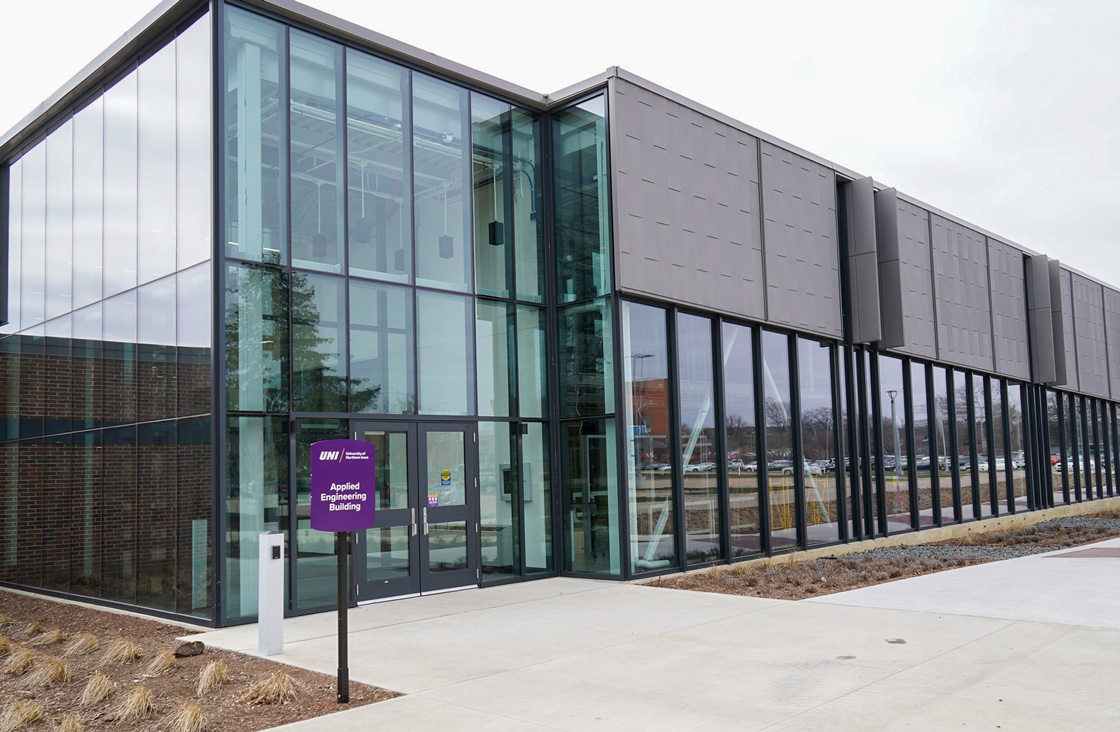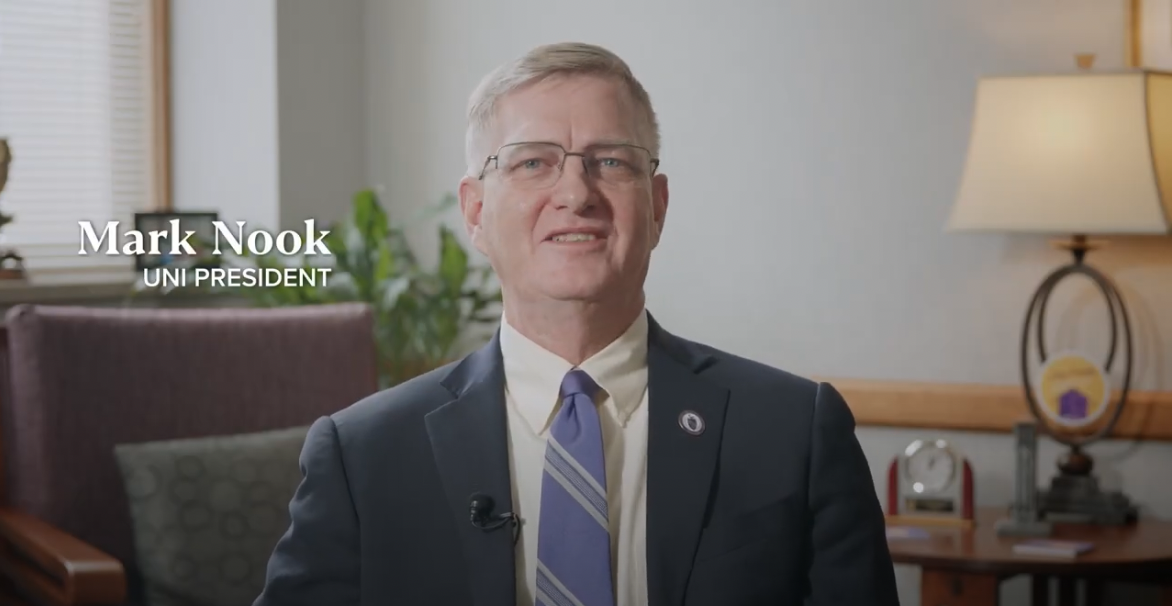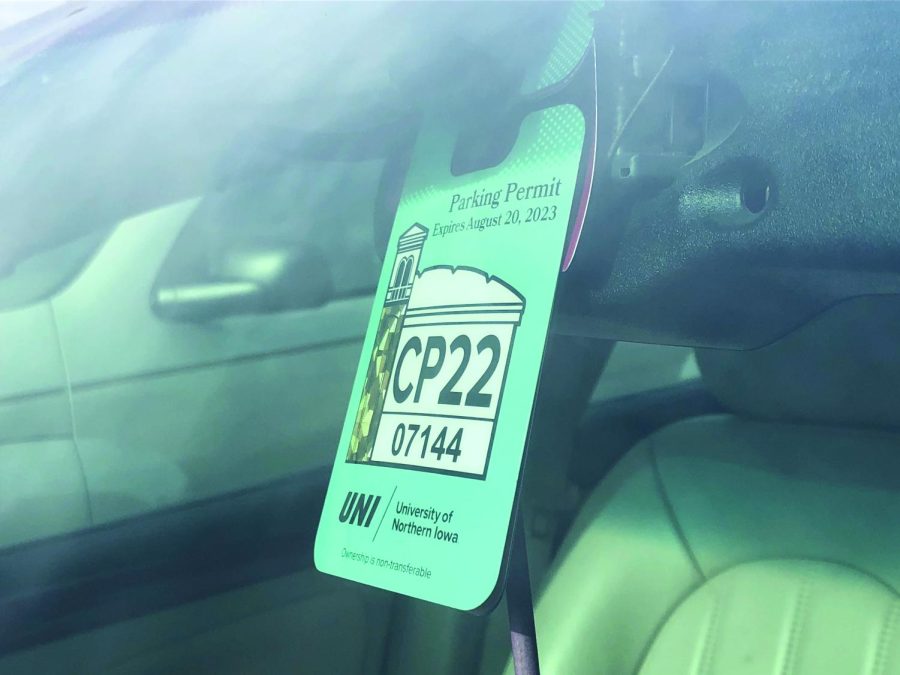The five candidates for the position of provost have completed their formal interviews, as of Monday. They have walked through campus, met with the Provost Search Committee, met with student groups, faculty and staff and have presented at an open forum Q&A in Lang Auditorium.
Student, faculty and staff feedback for these candidates was due Wednesday, Feb. 11.
The committee plans to submit their nominations to President Ruud by Feb. 17. The committee will recommend the candidates they find acceptable and provide a notation of strengths and weaknesses for each of those candidates. Data from the survey of students, faculty and staff, conducted by the committee, will also be provided to aid President Ruud in making the ultimate decision.
“We recognize that these are quality individuals who are being sought-after for other positions in senior administration, so it is important for us to be careful but to also move with dispatch to provide the president with names as soon as possible,” said John Johnson, history professor and chair of the Provost Search Committee.
The open forum presentations gave the candidates a chance to present their responses to a question that is crucial to the position of provost at UNI.
Johnson, at the beginning of each presentation, posed the following question: “Give us your roadmap to success in establishing academic distinctiveness for Iowa’s only comprehensive university in a state where the other two public institutions are large research universities.”
The question stems from the perceived need for UNI to define its identity in the face of Iowa’s research-based, or “R1,” institutions such as the University of Iowa and Iowa State University.
James W. Ermatinger
Provost candidate James W. Ermatinger, presented this past Monday.
Ermatinger holds a Ph.D. in history. He has spent the past five years as dean of the College of Liberal Arts and Sciences at the University of Illinois Springfield.
In his open forum presentation, Ermatinger stressed the importance of relevancy in maintaining academic distinction. He argued that relevancy is maintained through access, opportunity, accountability and transformation.
For Ermatinger, access comes through the balancing act of easing the university’s admissions requirements and affordability as well as the mentoring and advising of current students.
The university provides opportunities by fostering undergraduate research, study abroad options and experiential learning (i.e., internships).
Accountability is primarily accomplished by creating measures that ensure the progress and success of the university.
Ermatinger also feels that a willingness to transform is essential to maintaining relevancy.
“The only constant in higher education is change,” Ermatinger said.
Jeffrey W. Morin
Jeffrey W. Morin has been the dean of the College of Fine Arts and Communications at the University of Wisconsin-Stevens Point for the past 10 years. Morin’s scholarly and professorial background rests in studio art and graphic design.
Morin addressed the question of academic distinctiveness by detailing accounts of the interdisciplinary projects of which he has been a part at UWSP. Among these was a project called RiverPoint Paper– a three-pronged interdepartmental partnership with the original goal of developing an affordable paper for the Art Department. This collaboration yielded a high-quality, archival cotton-based paper.
When all was said and done, a national manufacturer, Strathmore Artist Papers, partnered with the UWSP to market their product– a product that can now be found in large-scale arts and crafts retailers such as Michaels.
“How do you create academic distinction for this institution when it isn’t an R1 institution? You pull resources; you bring more partners to the table. You create high impact experiences for faculty, staff and students,” Morin said.
Lawrence T. Potter
Provost candidate Lawrence T. Potter, Jr., characterized his response in terms of a strategic vision — as opposed to a roadmap or strategic plan.
“Unlike an institutional plan, a strategic vision does not attempt to map the entire university by specifying goals for each school, program, office or division,” said Potter.
“More importantly, a strategic vision outlines the process, which will lead to identification of several areas of action in which an additional investment of energy, money, or perhaps just focused attention will enable us to better embody the standard of excellence and attain certain distinctions as Iowa’s only comprehensive university within a 21st century context.”
As an undergraduate, Potter triple majored in English, philosophy and religion; he later obtained his Ph.D. in English literature and criticism. He was the dean of the College of Liberal Arts at Jackson State University from 2012-2014.
Potter outlined his strategic vision using three themes:
• Distinctive academic excellence
• Global education and engagement
• Innovation and partnerships
Respectively, these three tenets would be accomplished through collaborative research, access and targeted efforts to increase enrollment, among other means.
Two other candidates presented this month as well.
Michael J. Licari and A. James Wohlpart presented in January. These candidates were featured in the Jan. 26 edition of the Northern Iowan.
One Faculty’s Response
Martha Reineke, professor of religion, feels that the new provost would need to provide visionary leadership, possess the capacity for shared governance — that is, acknowledging that the curricular goals of a university grow out of the conversation between high-level administrators and the faculty–and hold the ability to articulate the value of all UNI majors to outside constituencies, especially the value of liberal arts majors.
“Those [Liberal Arts majors] are the ones that are under assault. Nobody says, ‘Close down the business school.’ Nobody says, ‘Close down the college of education…’ All the social sciences, the humanities and most of the arts are [under assault] all over the country,” Reineke said.
According to an earlier interview with Johnson, President Ruud hopes to make his decision by spring break.
“There’s always the question of whether the search will fail. I think that, among the people who interviewed, we could get a good provost,” Reineke said.








